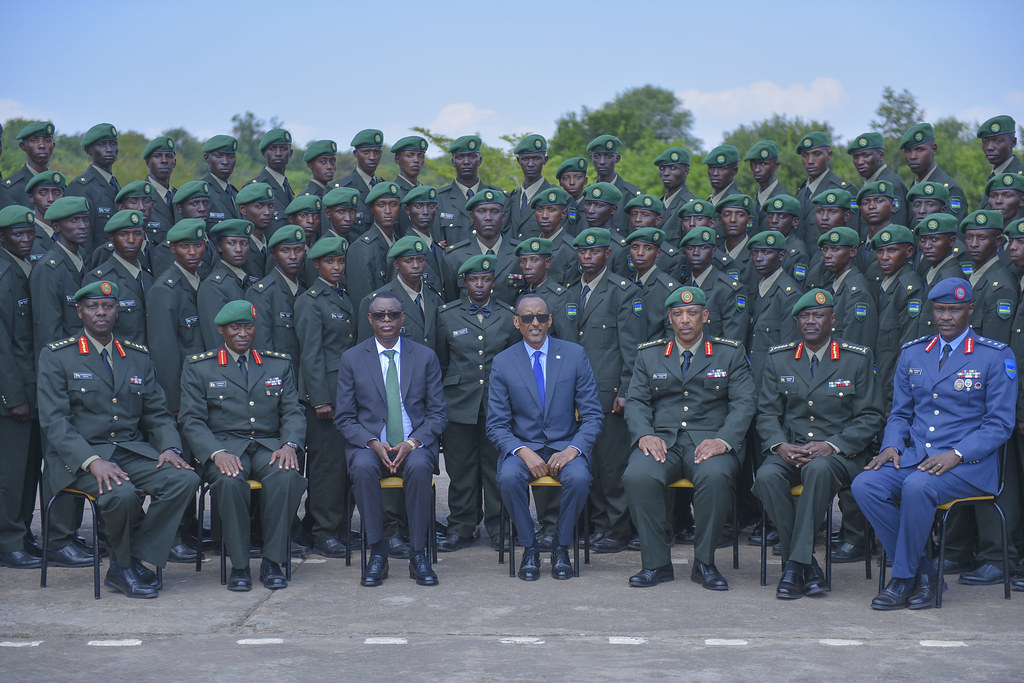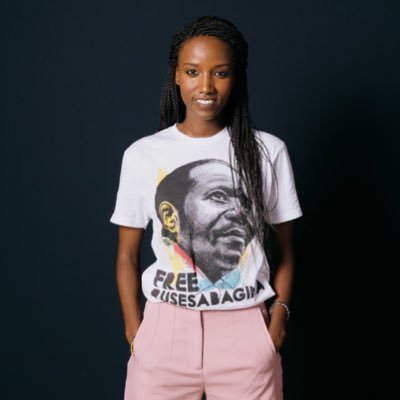International
Inside Rwanda’s bilateral, multilateral interventions to bring peace in conflict areas

Even
though clear, Rwanda’s goal in peace support operations and bilateral
operations such as in the Central African Republic and in Mozambique is often
distorted, or tainted, by the country’s detractors.
The
Rwandan military’s most important primary role is to protect the sovereignty
and territorial integrity of Rwanda. There are several secondary roles,
including working with other national security organs to maintain law and order
in the country. Rwandan security forces also participate in socio-economic
development activities as a part of a wider initiative of ensuring human
security. The belief is that in order to ensure sustainable security, security
forces must also work on human security.
As
if that is not all, they also participate in international peace support
operations, humanitarian operations, training, and disaster management. Their
primary intention in peace support operations and bilateral operations such as in
the Central African Republic and Mozambique is to protect innocent civilians
caught up in conflict. The other objectives are restoring the legitimately
elected authority in countries where such authority was compromised, fighting
terrorism and offering support in case of massive disasters in affected
countries.
That
is well stipulated in the Rwandan Constitution. Rwandan security forces are
constitutionally mandated, for example, to do what they are doing in Mozambique.
Rwanda’s
intervention in the Mozambican Province of Cabo Delgado is a case in point. Beginning
in October 2017, armed extremists linked to the Islamic State of Iraq and the
Levant (ISIL) – the group sometimes called al-Shabaab – launched an insurgency
in Cabo Delgado, the northernmost Province of Mozambique.
Mozambican
security forces had, for long, battled the extremists but thousands of
civilians continued to be displaced by the fighting. The armed extremists
launched attacks, and in August 2020 seized the port town of Mocimboa da Praia.
More than 50 people were beheaded by the armed extremists in the province in
April 2020 and a similar number in November 2020. In September 2020, the ISIL
captured Vamizi Island in the Indian Ocean.
On
March 24, 2021, the terrorists captured Palma, a major town less than 32 kilometers
from the border with Tanzania, murdering dozens of civilians and displacing
more than a half of the town's 75,000 residents.
Things
quickly changed when, on July 9, 2021, the government of Rwanda, at the request
of the government of Mozambique, started the deployment of a 1,000-strong
contingent of its military and police to Cabo Delgado. Lately, the Rwandans,
working in close collaboration with their Mozambican counterparts, managed to stop
the threat caused by the terrorists as well as ensure state authority in all
the areas where they were deployed.
Responsibility
to protect
Rwanda’s
deployment, which was based on the good bilateral relations between the two
countries, was commended by the AU as a strong and concrete act of African solidarity
to support a fellow member state fight terrorism and insecurity.
At
the time, Moussa Faki Mahamat, Chairperson of the African Union Commission,
tweeted: “I commend the Republic of Rwanda’s deployment of 1000 RDF &
Rwanda National Police members, to Cabo Delgado, at the request of the govt of
Mozambique, as a strong and concrete act of African solidarity to support a
fellow Member State fight terrorism and insecurity.”
The
deployment was also grounded in Rwanda’s commitment to the Responsibility to
Protect (R2P) doctrine and the 2015 Kigali Principles on the Protection of
Civilians, the government of Rwanda stressed.
After
stopping the 1994 Genocide against the Tutsi, the government in Kigali vowed
never to ever seat back when war crimes are committed elsewhere. After the 1994
genocide, Rwandans resolved never to ever take that route. They intervene to
stop killings such as those carried out in Cabo Delgado from 2017 to 2021.
Before the Rwandans arrived, more than 3,000 civilians were killed and 800,000
others displaced.
In
1994, Rwanda was failed by the
international community. Even the UN force that was in the country was
withdrawn at the height of the genocide. Rwanda therefore became one of the
first countries to adhere to the Responsibility To Protect (R2P or RtoP)
principle, a global political commitment endorsed by all member states of the
UN at the 2005 world summit in order to address its four key concerns to prevent
genocide, war crimes, ethnic cleansing and crimes against humanity. The
principle is not a law, nor is it a legally binding framework but the crimes it
seeks to prevent are defined in international law.
The
Rwandans mission is primarily focused on saving innocent civilians who, most
often, are victims of terrorism. Within one month of their arrival in Cabo
Delgado, Rwandan troops and their Mozambican counterparts, registered
significant progress in curtailing the armed extremists terrorism and mayhem and
destruction. Today, they have helped restore state authority and ensured a
return to normalcy in the Province.
Everything
in context, however, Kigali and its partners also understand that terrorism has
no borders. They are aware that spill-over effects of acts of terrorism in
Mozambique can affect other countries in the region and beyond, including
Rwanda
Mozambique
is not the first country that Rwanda supported in terms of restoring peace and
security. Rwanda has supported peace efforts in the Darfur region of Sudan.
Exactly
10 years after the 1994 Genocide against the Tutsi, Rwanda was the first
African country to deploy a contingent, 155 soldiers, under the then African
Union Mission in Sudan (AMIS) in 2004, to restore order in Darfur. Later, Rwandans
also went on to do a lot in South Sudan where they still operate and have
registered significant progress. The same applies to the Central African
Republic where Rwandan security forces have also restored legitimate leadership
and order.
Their
mission is to bring peace to conflict areas wherever they are called upon. The
Rwandans are probably more motivated than any other player in world to
undertake these missions because of their history.
Detractors
There
will always be detractors who do not trust Rwanda’s intentions. Unfounded lies
are always going to be published about Rwanda’s alleged economic ambitions but
such should not deter the country’s noble cause.
One
of the dangerous lies circulating is that the Rwandan government links security
and economic partnerships and it exploits the profile built up over the years
by President Kagame. This is farfetched and unrealistic.
In
the case of the CAR, it is alleged that some cooperation agreements occurred
prior to the deployment of Rwandan troops. The authors of such distortions
claim to be proved correct when, for example, Bangui and Kigali (or Maputo and
Kigali) sign agreements enhancing business and economic development ties, and
Rwandan entrepreneurs visit in search of investment opportunities. The fact
that Bangui guaranteed incentives for Rwandan entrepreneurs who will set up
activities in the country is twisted to confirm a scandalous, predetermined,
narrative. This begs the question: why shouldn’t Rwanda tap investment
opportunities in the CAR anyway? What crime does Rwanda commit by doing so,
when invited, and going through the right legal channels?
Whatever
the case, the fact is that economic ambitions are never at the core Rwanda’s
national interests. Such arguments are so flawed and self-defeating as time
will tell.
What
the Rwandans accomplished, so far, gives them the latitude, and the legitimacy,
to keep supporting countries wherever they are called upon.






